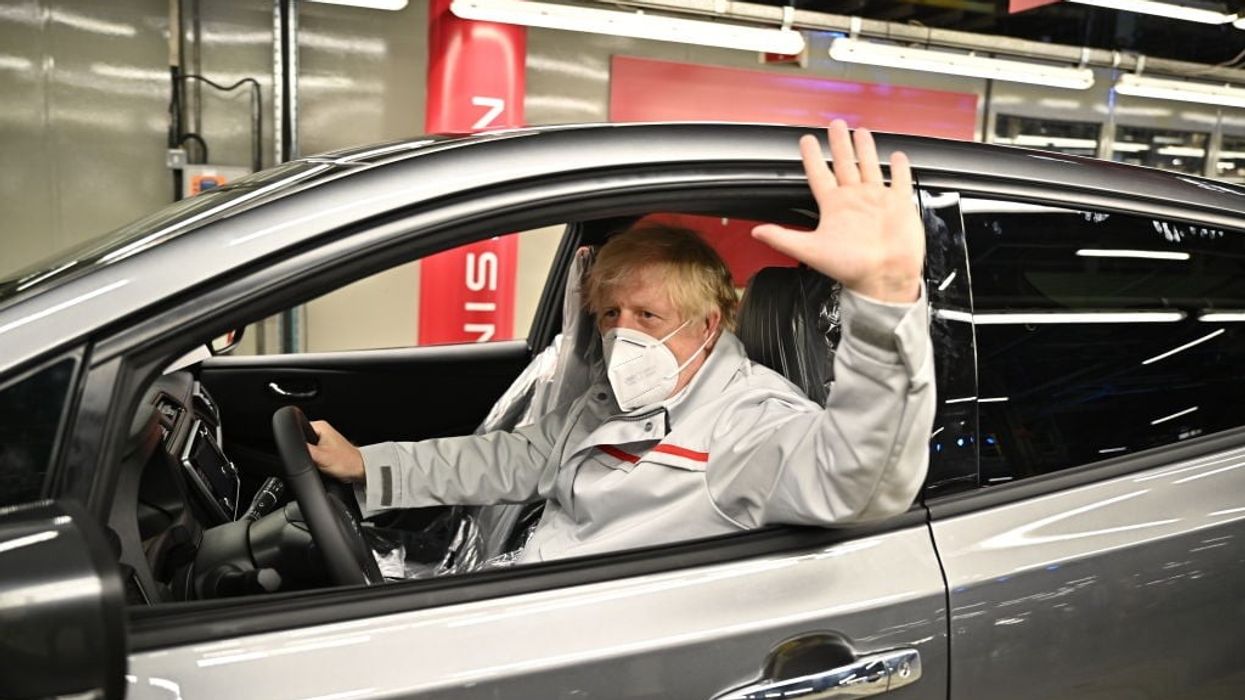NISSAN launched plans on Thursday (1) for a vast battery gigafactory in northeastern England, where it will manufacture a new electric vehicle as companies and governments accelerate away from fossil-fuel cars.
Prime Minister Boris Johnson hailed the post-Brexit investment totalling £1 billion at Nissan's largest European factory that is set to create 6,200 jobs as "a major vote of confidence in the UK".
Nissan's Chinese battery supplier Envision AESC will invest £450 million to build the battery plant that will be run on renewable energy and power up to 100,000 Nissan electric vehicles per year.
The facility, which will be built next to Nissan's factory in Sunderland, was hailed as key to the UK's transition away from high-polluting fossil fuel vehicles.
The news comes just days after Nissan's French partner Renault unveiled plans for an Envision-owned battery factory in France, as global carmakers race to meet booming demand for greener transport and governments target net-zero carbon emissions by 2050.
The Japanese auto giant is to spend up to £423m on Britain's all-electric EV36Zero project, while Sunderland City Council will help to bring the total amount of investment up to £1bn.
"This is a landmark day for Nissan, our partners, the UK and the automotive industry as a whole," said Nissan's Chief Operating Officer Ashwani Gupta.
Nissan, which had previously warned that a no-deal Brexit would threaten its 35-year-old Sunderland factory, said the new investment represents 6,200 jobs at the Japanese group and its UK suppliers.
There will be 900 new Nissan jobs and 750 new Envision AESC jobs.
"This is a huge step forward in our ambition to put the UK at the front of the global electric vehicle race," said UK Business Secretary Kwasi Kwarteng.
"The cars made in this plant, using batteries made just down the road at the UK's first at-scale gigafactory, will have a huge role to play as we transition away from petrol and diesel cars."
Nissan established Britain's first electric vehicle and battery production at Sunderland in 2013 with its Leaf car.
The company has more recently faced a series of trials, from weak demand during the pandemic to the fallout from the arrest of former boss Carlos Ghosn, now an international fugitive after jumping bail and fleeing Japan.
It has delayed the planned summer launch of its flagship new electric Ariya model to this winter over the global chip shortage plaguing automakers.
Announced in July 2020, the new 100-per cent electric model was initially supposed to go on sale in Japan from mid-2021, before arriving in Europe, North America and China by the end of the year.
In the UK, Lei Zhang, founder and chief executive officer of Envision Group, said his company was building on its long-term partnership with Nissan "to make high performance, longer range batteries for electric vehicles affordable and accessible for millions more motorists".
He said growth in demand could bring a future investment of up to £1.8bn and 4,500 jobs by 2030.





